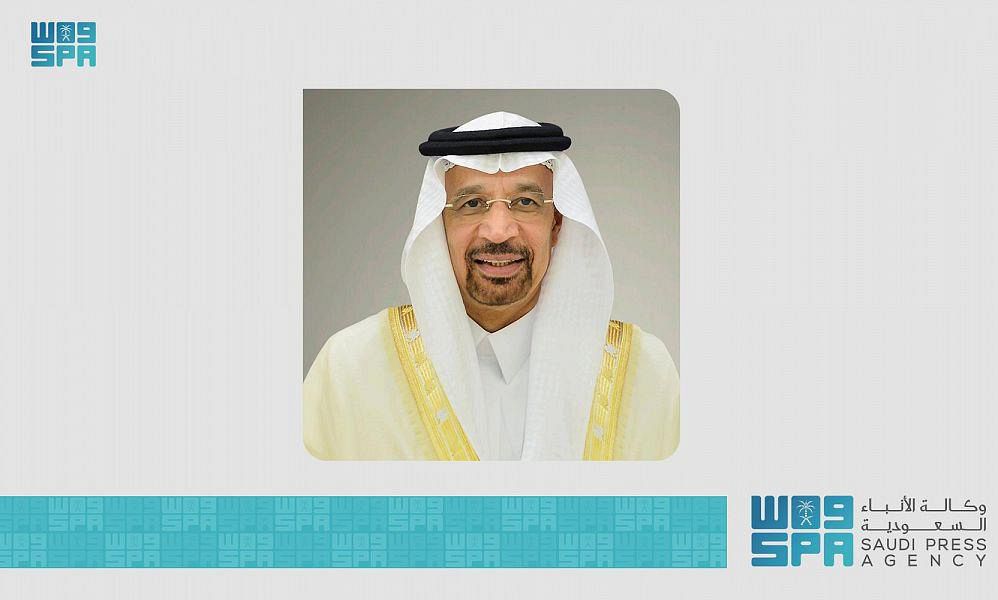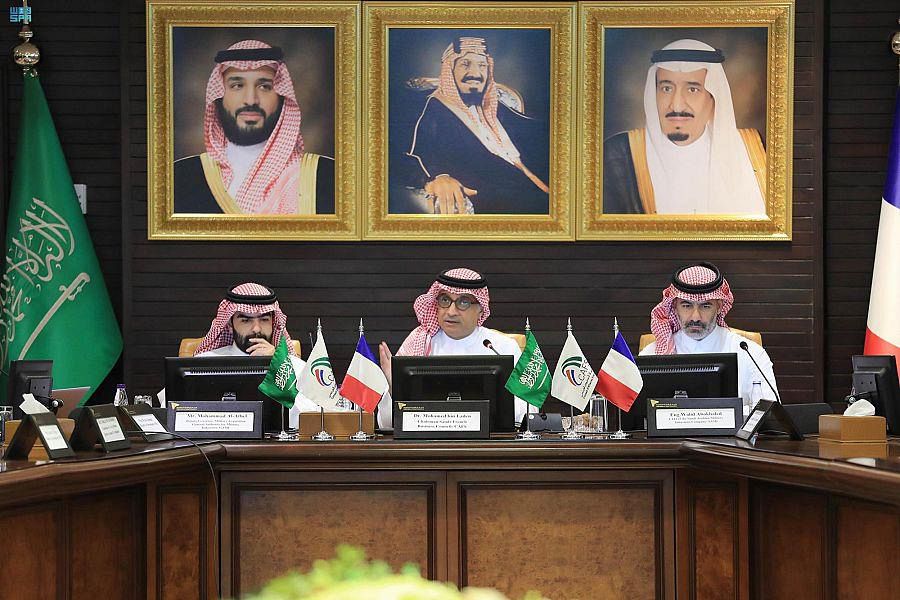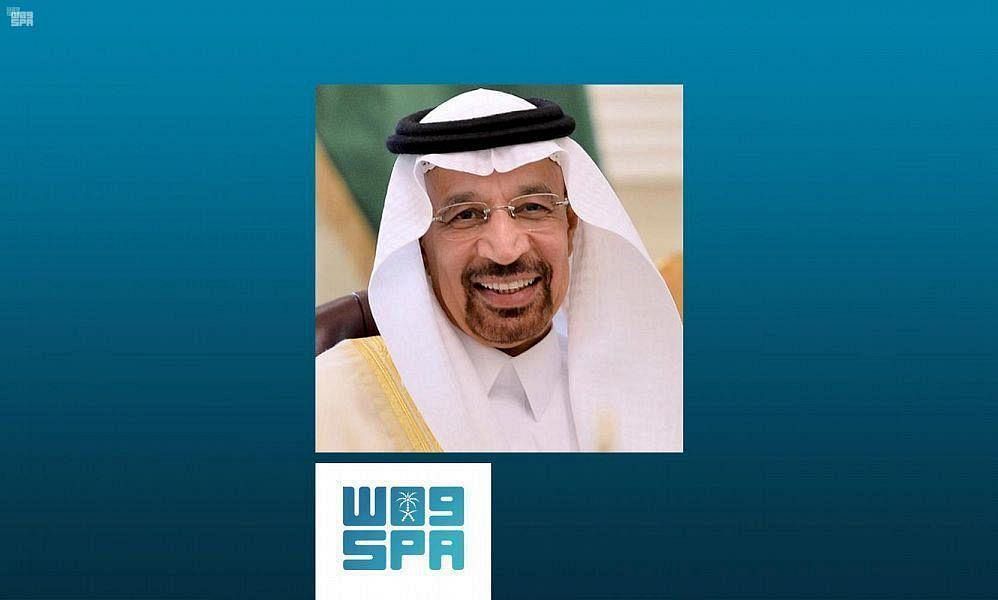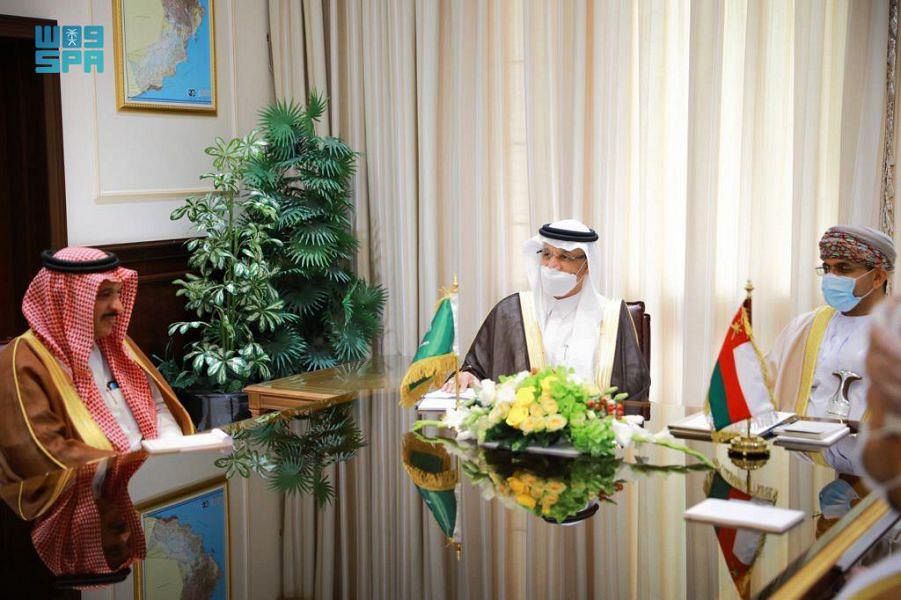
Jeddah, Jul 16, 2022, SPA -- Commenting on the visit of President Joseph Biden of the United States of America to the Kingdom of Saudi Arabia to attend the Saudi-American summit, the American-GCC Summit, and the American-GCC-Arab Summit with the participation of Egypt, Iraq, and Jordan, His Excellency Khalid A. Al -Falih, Saudi Minister of Investment, said:
"I would like to join the Custodian of the Two Holy Mosques, King Salman bin Abdulaziz Al Saud, and His Royal Highness, Crown Prince Muhammad bin Salman bin Abdulaziz Al Saud, in welcoming the American President, and the leaders of the Gulf and Arab countries, to the Kingdom of Saudi Arabia. These meetings come at a particularly critical period and offers us the opportunity to enhance the relations and strategic partnerships between our countries and the United States, for the good of our peoples, as well as the prosperity, stability, and security of the whole world."
Minister Al -Falih added:
"The economic and investment relations between the Kingdom and the United States is nearly ninety years old, having started with the Kingdom signing, in 1933, an oil concession agreement with Standard Oil of California (SOCAL, and later Chevron). Saudi-U.S. relations gained momentum after the historical meeting between His Majesty the Founding King, Abdulaziz bin Abdurrahman Al Saud and then-U.S. President Franklin Roosevelt, in 1945. That meeting laid the foundation for a long-term strategic partnership between the two countries that have remained firm and prosperous, despite global and regional challenges, over the past decades. Moreover, Saudi-American relations have witnessed a major boost under the leadership of the Custodian of the Two Holy Mosques and HRH, the Crown Prince.”
The Saudi Minister of Investment explained that the visit of the U.S. President and the convening of the three summits come at a critical time, indicating that, on the one hand, there are challenges the whole world is facing, including the COVID-19 pandemic, geopolitical disturbances, such as the Russian-Ukrainian conflict, which affect the global economy and include a slow-down of investments, impact to supply chains, and repercussions on food security. On the other hand, the Kingdom's development, boosted by its “Vision 2030", has passed the five-year mark, achieving great success and bringing the Kingdom closer to its goals and objectives of building its future as a vibrant society, a prosperous economy, and an ambitious homeland.
Minister Al-Falih affirmed that the Kingdom’s “Vision 2030" and the National Investment Strategy aim to open doors for Saudi and non-Saudi investors to promising emerging sectors within the Kingdom, with the objective of enhancing the role of the private sector in diversifying the resources of the Kingdom’s national economy, creating quality job opportunities, and developing local communities. He also pointed to the role of the National Investment Strategy in promoting investment opportunities in specific sectors, including tourism, entertainment, transportation, logistics, energy (including renewable energy), green technologies, and green financing, as well as sectors related to digital transformation, such as advanced industries, health, and financial services.
Referring specifically to mutual Saudi-American investments, Minister Al-Falih explained that the Kingdom’s investment relationship with American companies continues to develop and grow in both countries, since its debut in 1933, stressing that today there are more than 740 American companies registered as foreign institutions operating in the Kingdom, employing over 67,000 people, the majority of whom are Saudi. Minister Al-Falih also clarified that these companies are spread throughout the Kingdom, mainly across sectors such as manufacturing, information and communications technologies, as well as professional, scientific, and technical sectors.
He also indicated that Saudi companies, led by Saudi Aramco, SABIC, and Ma'aden, have made significant investments in the United States that are worth tens of billions of dollars, predominantly in oil and gas industries, as well as chemicals. Additionally, the Public Investment Fund (PIF) holds various investments which include about USD 44 billion worth of shares listed in U.S. markets, according to Q1 2022 numbers. He clarified that Lucid Motors, a leading electric vehicle producer, which recently signed an agreement to build a factory in the Kingdom, represents one of the PIF’s strategic investments in the United States. Minister Khalid Al-Falih affirmed that the Kingdom seeks to build and expand this strategic partnership, including with private sector institutions in both countries.
Recalling that the Ministry of Investment led a large delegation of private and public sector leaders from the Kingdom on an official visit to the United States in June of this year, the Minister underlined that the visit had confirmed a strong interest in doing business from private sector actors on both sides.
Minister Al-Falih pointed out that as an affirmation of the established and growing strategic partnership between the Kingdom of Saudi Arabia and the United States on the investment and business side, the program of the U.S. President’s visit included the signing of a number of agreements and memoranda of understanding, some of which are between the private sector and the government, while others are between private sector institutions in both nations.
He explained that the thirteen memoranda of understanding and agreements covered the sectors of aviation industries, defense, industry and industrialization in general, health, energy, including renewable energy, and tourism. Minister Al-Falih affirmed that these investments will serve to further advance these and other sectors, thereby contributing to the creation of quality jobs and the transfer of technology.
Referring specifically to the health sector, Minister Al-Falih pointed out that the COVID-19 pandemic had pushed this sector to the top of the global agenda. He noted that the long-term vision of the Kingdom is to become a global hub for biomedicine and life sciences in service of the Kingdom, the region, and the entire world.
With regards to the advanced manufacturing sector, the Minister highlighted that it is a sector of growing importance globally, and that one of the main initiatives of the National Investment Strategy related to the development of this sector is the Supply Chain Attraction Program. Minister Al-Falih added that this program aims to attract foreign supply chain investments in the advanced manufacturing and services sector, explaining that the program focuses on enabling the Kingdom to become a major source of products and services that are of importance for global industries, by building on the competitive advantages that the Kingdom offers, to enhance global supply chains and improve flexibility and resilience.
Minister Al-Falih also highlighted the importance of the education sector and the Kingdom’s focus on its development. He noted the role of Saudi-American relations in supporting the Saudi government's efforts in this field. The Minister pointed out that the Kingdom and the United States enjoy strong and long-standing cultural and educational relations, and that the Saudi government has allocated about one fifth of its total budget, or approximately 50 billion US dollars, of the fiscal year 2022, to education.
Minister Khalid Al-Falih concluded his statement by emphasizing that developing investments in general, and investments with strategic partners, such as the United States, is ongoing with continued success, enabled by the support and guidance provided by the Kingdom’s leadership.
--SPA
23:56 LOCAL TIME 20:56 GMT
0036
www.spa.gov.sa/w1761938







